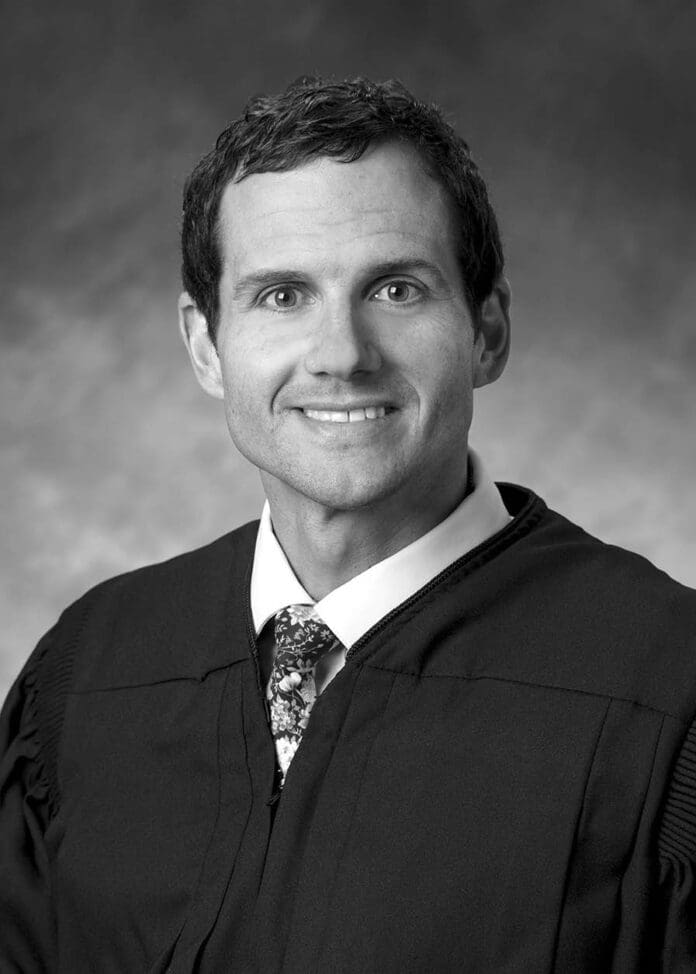Remote Court Hearings Improve Justice, Raise Concerns By Steve Hanke
The COVID-19 pandemic acted as a catalyst for change in the judicial system, speeding up the adoption of remote court hearings. The Minnesota Judicial Branch has made significant investments in technology to facilitate these hearings, aiming to improve access to justice, enhance efficiency, and meet evolving needs, especially during and after the pandemic. We now have the ability to hold all hearings over Zoom.
But just because we can, should we?
In the 6th Judicial District — which includes Cook, Lake, St. Louis (Duluth, Hibbing, and Virginia), and Carlton counties — remote hearings offer several advantages. These include increased accessibility and cost reductions. Traveling to court in our region can be time-consuming and expensive, particularly for those who need transportation, time off from work, or child care. Remote hearings provide a lifeline to individuals with mobility issues, disabilities, or health concerns.
The shift to remote hearings has helped create a more-accessible and inclusive system for individuals who rely on legal-aid organizations. This expanded access not only benefits individuals seeking legal help but also supports the continued work of legal aid organizations and court-appointed attorneys in delivering crucial services to underserved communities. Safety has also improved, as remote hearings eliminate the need for in-person contact between parties, reducing the risk of physical confrontations, intimidation, or harassment.
However, remote hearings present significant challenges as well. Fairness is the most prominent concern. Critics argue that remote hearings compromise the principle of “having your day in court.” Many feel that something essential is lost when justice is dispensed through a cold screen. The emotional weight of proceedings can be harder to convey remotely, and, for some, the experience may feel diminished. Those unfamiliar with the court process may find remote hearings especially alienating or confusing.
Another challenge is the digital divide. The promise of a digital courtroom falls flat for those in rural, underserved areas who lack reliable internet or cellphone service. Northeastern Minnesota, in particular, struggles with connectivity issues, creating a significant gap.
Decorum is also affected. Remote hearings are often perceived as less formal, important, or personal, which can influence participants’ behavior and erode respect for the judicial process. Much like how people act differently when behind a keyboard, some say or do things online they never would in person. To address these issues, Minnesota Judicial Council Policy 525, known as the “OneCourtMN Hearings Initiative Policy,” aims to standardize decisions on whether court proceedings should be conducted remotely or in-person.
Policy 525 can be found on the Minnesota Judicial Branch’s website (mncourts.gov). This policy directs district court judges to schedule and hold most hearings remotely, though certain types of hearings will remain in person unless exceptions apply. This new framework takes effect Feb. 3.
It’s important to note that judicial officers in your local courthouses retain the discretion to deviate from the default hearing format on a case-by-case basis. A request for an exception can be made by a party or initiated by the court by filing a Request for Remote or In-Person Appearance Form, also available at the Minnesota Judicial Branch site.
As a judge, I under-stand that the justice system must evolve to meet the needs of changing times. The oneCourtMN Hearings Initiative Policy is a step in the right direction, designed to make our courts more efficient, accessible, and fair. Ultimately, whether a hearing is held remotely or in-person should be determined on a case-by case basis, considering the unique circumstances and needs of all parties involved.
Steve Hanke is a 6th Judicial District judge in the Lake County Courthouse in Two Harbors and in the Cook County Court-house in Grand Marais.




